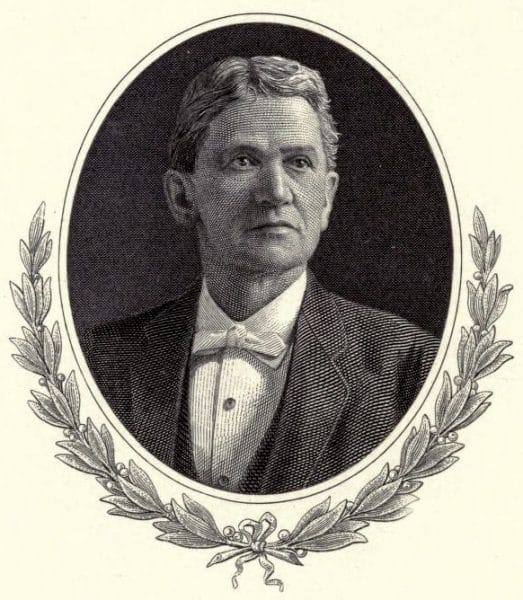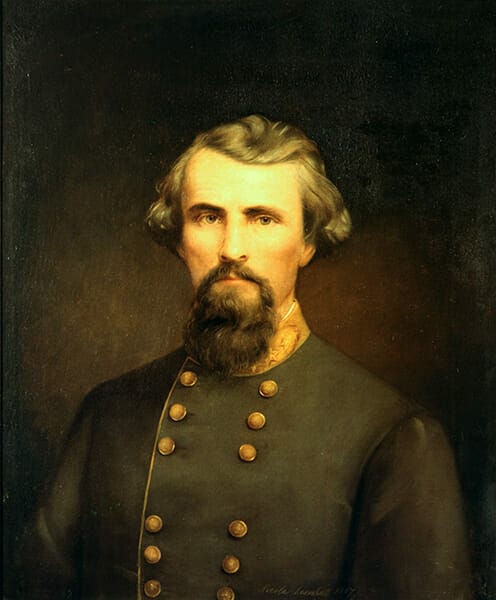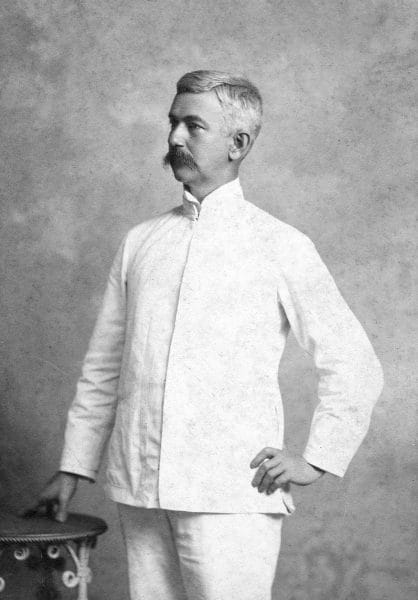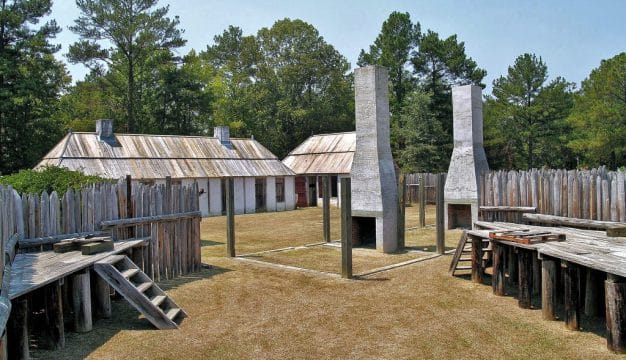William Richardson
 Richardson, William
William Richardson (1839-1914) represented the Eighth Congressional District of Alabama from 1900 to 1914, promoting the development of the Tennessee River for hydroelectric power and navigation and advocating for veterans. Although opposed to secession, he joined the Confederate army and during the Civil War was taken prisoner and severely wounded on two occasions. He later served as an Alabama state senator and judge. A conservative Democrat, he opposed radical Republicans’ during the Congressional Reconstruction phase in Alabama.
Richardson, William
William Richardson (1839-1914) represented the Eighth Congressional District of Alabama from 1900 to 1914, promoting the development of the Tennessee River for hydroelectric power and navigation and advocating for veterans. Although opposed to secession, he joined the Confederate army and during the Civil War was taken prisoner and severely wounded on two occasions. He later served as an Alabama state senator and judge. A conservative Democrat, he opposed radical Republicans’ during the Congressional Reconstruction phase in Alabama.
Richardson was born in Athens, Limestone County, on May 8, 1839, to William Richardson and Anne Davis; he was the fourth of six children. His parents were natives of Virginia who had moved to north Alabama with their families soon after it opened to settlement. Richardson’s maternal grandfather was Nicholas Davis, a captain in the War of 1812 and a member of the convention that drafted Alabama’s first constitution. Davis was twice a candidate for governor on the Whig ticket and served as president of the Alabama senate for five terms. On his father’s side, Richardson was the descendant of a distinguished family of lawyers and planters. Richardson was educated in Athens, and he later completed his college education at the Florence Wesleyan University, now Athens State University.
 Nathan Bedford Forrest
As Alabamians debated whether to leave the Union, Richardson spoke out against secession and even helped to hoist the “Stars and Stripes” above the Athens court house. He could not take up arms against his fellow Alabamians, however, and enlisted as a private in the Confederate Army at the outbreak of the Civil War. He served in the Fiftieth Alabama Infantry Regiment and soon was promoted to captain for his courageous behavior in battle. In 1862 at the Battle of Shiloh in Tennessee, Richardson was severely wounded and made a prisoner of war. Upon his recovery, he escaped from prison and attempted to get through federal lines to rejoin his command. He and his companion in the attempt, a Confederate spy using the assumed name James Paul, were captured by U.S. Army soldiers. When it was learned that Paul was a Confederate spy, the two were taken to Murfreesboro, Tennessee, imprisoned, court-martialed as spies, and condemned to be shot. On the eve of their execution, the pair was rescued when forces under Confederate general Nathan Bedford Forrest attacked the town and freed the prisoners from the burning prison, which had been set ablaze by the fleeing Union jailers. Richardson returned to service with the Fiftieth Alabama Infantry and was again seriously wounded at the 1863 Battle of Chickamauga in Georgia. He remained on the battlefield for six days being tended by a servant before he was taken to a hospital. Richardson’s arm was permanently disabled by the injury, and he spent the remainder of the war convalescing. He was paroled from service in April 1865, in Marietta, Georgia.
Nathan Bedford Forrest
As Alabamians debated whether to leave the Union, Richardson spoke out against secession and even helped to hoist the “Stars and Stripes” above the Athens court house. He could not take up arms against his fellow Alabamians, however, and enlisted as a private in the Confederate Army at the outbreak of the Civil War. He served in the Fiftieth Alabama Infantry Regiment and soon was promoted to captain for his courageous behavior in battle. In 1862 at the Battle of Shiloh in Tennessee, Richardson was severely wounded and made a prisoner of war. Upon his recovery, he escaped from prison and attempted to get through federal lines to rejoin his command. He and his companion in the attempt, a Confederate spy using the assumed name James Paul, were captured by U.S. Army soldiers. When it was learned that Paul was a Confederate spy, the two were taken to Murfreesboro, Tennessee, imprisoned, court-martialed as spies, and condemned to be shot. On the eve of their execution, the pair was rescued when forces under Confederate general Nathan Bedford Forrest attacked the town and freed the prisoners from the burning prison, which had been set ablaze by the fleeing Union jailers. Richardson returned to service with the Fiftieth Alabama Infantry and was again seriously wounded at the 1863 Battle of Chickamauga in Georgia. He remained on the battlefield for six days being tended by a servant before he was taken to a hospital. Richardson’s arm was permanently disabled by the injury, and he spent the remainder of the war convalescing. He was paroled from service in April 1865, in Marietta, Georgia.
When the war ended, Richardson returned to Alabama, where he was elected to represent Limestone County as a state senator from 1865-1867. During this period, he studied law, was admitted to the bar, and became a member of the early Ku Klux Klan in north Alabama. His brother, Nicholas Davis Richardson, was Grand Cyclops (president) of the Athens den (as these local groups were known), the first Ku Klux Klan den in Alabama. The Klan in Athens and north Alabama was active in opposing the efforts of the Union League to establish the Republican Party in Alabama. During the first convention of the Ku Klux Klan in 1867, William Richardson reportedly suggested Nathan Bedford Forrest as its first national Grand Cyclops after former Confederate general Robert E. Lee declined the position.
In 1867, Richardson moved to Huntsville, Madison County, and began practicing law. He married his cousin, Elizabeth Rucker, of Lynchburg, Virginia, on December 18, 1872, and the couple had five children before her death in 1891. In 1875, Richardson was elected probate judge of Madison County, an office he held until 1886. After leaving the bench, Richardson returned to practicing law in Huntsville. In 1890, he became a Democratic candidate for governor and in the convention at Montgomery garnered unanimous support of counties north of Birmingham. Though one of the leading candidates, he withdrew his name from consideration to harmonize factional differences among Democrats.
 Gorgas, William Crawford
On July 3, 1900, Richardson was elected by his party to succeed Confederate Gen. Joseph Wheeler, who had resigned from Congress the previous April. Richardson represented Alabama’s Eighth Congressional District which, at the time, consisted of Lawrence, Colbert, Lauderdale, Limestone, Morgan, Madison, and Jackson Counties in the Tennessee Valley. He initially served on the Committee on Interstate and Foreign Commerce (CIFC), which, during his service, created the Public Health Service and the Department of Commerce and Labor. The CIFC also provided funding for American efforts to complete the construction of the Panama Canal, with fellow Alabamian William Crawford Gorgas being named sanitary expert for the massive project to combat rampant yellow fever. At the beginning of the Sixty-second Congress, Richardson’s sixth full term, Democrats reorganized the House of Representatives, and he was made chairman of the Committee on Pensions but continued to serve on the CIFC until the end of that term, when Congress limited members to serving on only one large committee at a time. As chairman of the Committee on Pensions, Richardson advocated for a stronger pension program for war veterans, widows, and orphans, as well as federally funded group homes for disabled Union and Confederate soldiers. Richardson also promoted the interests of his district: He was an early voice in the House for harnessing the commercial potential of the Tennessee River for navigation and hydroelectric power.
Gorgas, William Crawford
On July 3, 1900, Richardson was elected by his party to succeed Confederate Gen. Joseph Wheeler, who had resigned from Congress the previous April. Richardson represented Alabama’s Eighth Congressional District which, at the time, consisted of Lawrence, Colbert, Lauderdale, Limestone, Morgan, Madison, and Jackson Counties in the Tennessee Valley. He initially served on the Committee on Interstate and Foreign Commerce (CIFC), which, during his service, created the Public Health Service and the Department of Commerce and Labor. The CIFC also provided funding for American efforts to complete the construction of the Panama Canal, with fellow Alabamian William Crawford Gorgas being named sanitary expert for the massive project to combat rampant yellow fever. At the beginning of the Sixty-second Congress, Richardson’s sixth full term, Democrats reorganized the House of Representatives, and he was made chairman of the Committee on Pensions but continued to serve on the CIFC until the end of that term, when Congress limited members to serving on only one large committee at a time. As chairman of the Committee on Pensions, Richardson advocated for a stronger pension program for war veterans, widows, and orphans, as well as federally funded group homes for disabled Union and Confederate soldiers. Richardson also promoted the interests of his district: He was an early voice in the House for harnessing the commercial potential of the Tennessee River for navigation and hydroelectric power.
Richardson remained in office until his death in Atlantic City, New Jersey, on March 31, 1914. At his memorial address, Congressman John Burnett of Alabama, who represented the Seventh District in the northeast corner of the state, said that Richardson deserved a monument from the people of the Tennessee Valley for his work advocating for the development of water power along the Tennessee River in Alabama. That result, though, would occur after Richardson’s death with the damming of the Tennessee River and much later through the founding of the Tennessee Valley Authority. He is buried in Maple Hill cemetery in Huntsville.
Further Reading
- Axford, Faye Acton. Limestone County after Appomattox, 1865-1870. Athens, Ala.: Athens Publishing Company, 1985.
- Davis, Susan Lawrence. Authentic History, Ku Klux Klan, 1865-1877. New York: American Library Service, 1924.
- Edwards, Christine Williams. The Lure and Lore of Limestone County. Tuscaloosa, Ala.: Portals Press, 1978.
- United States. 63rd Congress. William Richardson (late a representative from Alabama) Memorial addresses delivered in the House of Representatives of the United States, Sixty-third Congress, third session. Proceedings in the House January 31, 1915. Washington. 1915.



